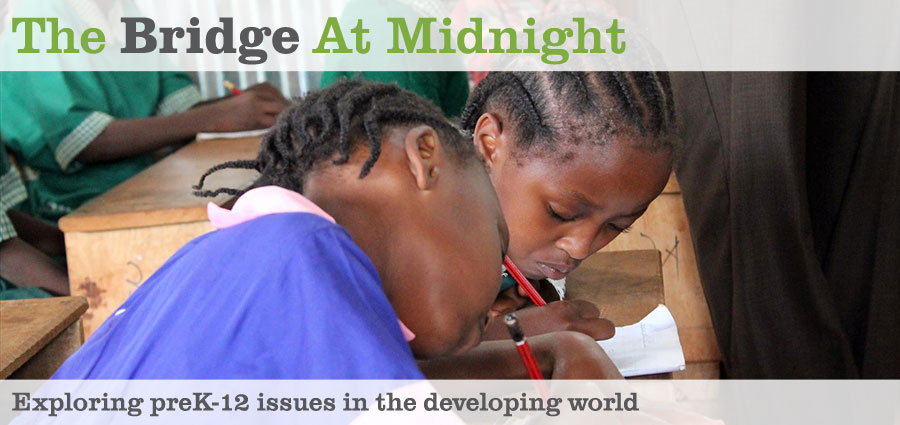What Can Little Kids Learn?
Posted: March 27th, 2014 | Author: Michael Goldstein | | No Comments »
People argue about this a lot. In Kenya our sense is that parents tend to always want more rigor. That leads to a question of “what are young kiddos capable of understanding?” Enter Dan Willingham, our favorite cognitive scientist, even though he comes from University of Virginia:
But the history of developmental psychology shows that the age at which children can reach cognitive milestones depends in no small part on the cleverness of the methods used to measure their ability. Perhaps younger students could understand evolution under the right circumstances. A new study (Kelemen et al, 2014) indicates that’s so.
Researchers tested children aged 5 through 8. Kids heard a story about pilosas, fictional animals whose survival was threatened when their food source, insects, started to live below ground in deep, narrow tunnels. Pilosas have trunks which might be wide or narrow. The story went on to explain that in successive generations, trunks became less variable, as pilosas with narrow trunks survived and had young, whereas pilosas with wide trunks could not get enough to eat and did not reproduce.
Researchers tested comprehension of the story and children’s ability to generalize the biological principle to a new case. They were tested immediately and after three months. Each test included ten questions in all (five open, five closed) which probed understanding of different aspects of natural selection such as differential survival, differential reproduction, and the passing on of traits between generations.
7 and 8 year-old children showed good comprehension of the story, with nearly half showing an understanding of the natural selection in one generation and 91% showing at least a partial understanding. Remarkably, 3 months later, this knowledge transferred more or less intact to a story about a new species.
Read the whole thing here.


Leave a Reply